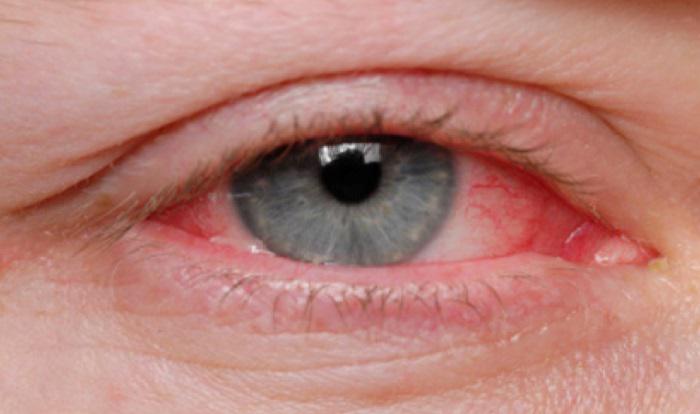New black flaoters or flashing lights in vision:
Black spots, or “floaters,” in your vision may be a sign of a detachment of the jelly, or the vitreous, in your eye. While this is a normal occurrence in an aging eye, in some cases this vitreous detachment can be associated with a hole or a tear in the retina. This is especially true if you are also noting flashing lights in your vision. In these cases, we worry about a retinal detachment. Ocular migraines can also be responsible for similar symptoms. Any time you notice new or atypical visual symptoms, it is advised that you call our office to schedule an appointment as soon as possible. Our experienced doctors will provide a thorough eye examination, likely including dilating your pupils, to rule out serious problems involving the retina or other complications.
Red eye(s):
There are many causes of red eyes. In some cases, a red eye can be from a viral or bacterial infection. In other instances, an inflammatory reaction is occurring from dryness, allergies, or a systemic condition. Injury or hemorrhage can also present as a red eye. An eye doctor should evaluate any new or chronic red eye. This is especially true for contact lens wearers, as vision threatening ulcers or inflammation can occur that requires prompt medical attention.

Itchy or Watery Eyes:
Allergies and dry eyes are common causes of itchy or watery eyes. Our doctors can evaluate you and customize a treatment plan to address your symptoms. There are medications and treatment options available.
Dry or Gritty/Foreign Body Sensation:
Patients who feel like they have “sand in their eyes,” or a gritty sensation are usually suffering from dryness. Treatment plans will often involve an initial evaluation and treatment starting with lubricating eye drops. More aggressive options can be used, including punctal plugs, prescription Restasis, and other medications.
Glare/Trouble Night Driving:
In addition to blurry or cloudy vision, glare and difficulty with night driving are both common symptoms associated with the development of cataracts. The lens inside of the eye, which is responsible for focusing light on the retina, turns yellow and cloudy, causing light scatter and decreased visual acuity. Cataracts are a normal process for an aging eye, although certain health conditions, ocular injuries, or steroid medication use can accelerate their development. A complete eye exam will allow our doctors to determine if you have beginning or advanced cataracts. If cataract surgery is recommended, we are happy to discuss your surgical options at your office visit.
